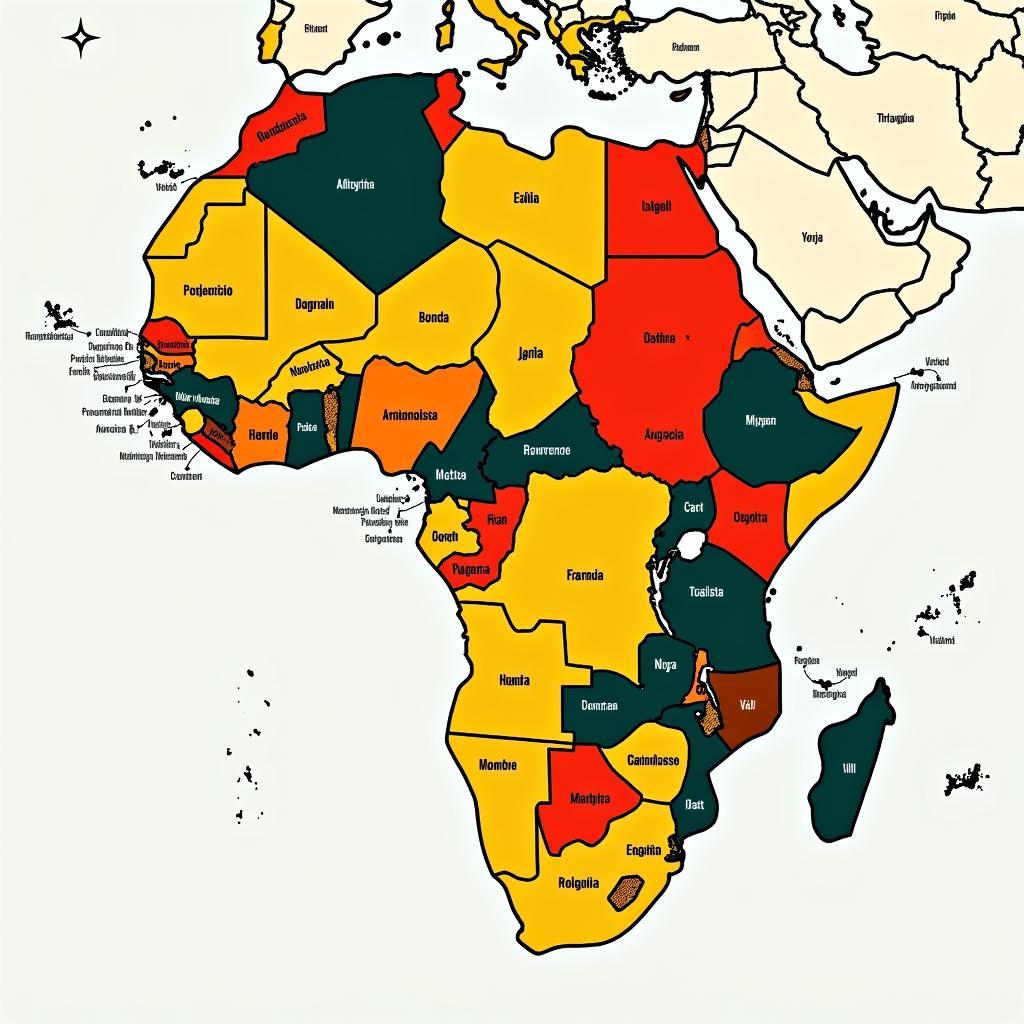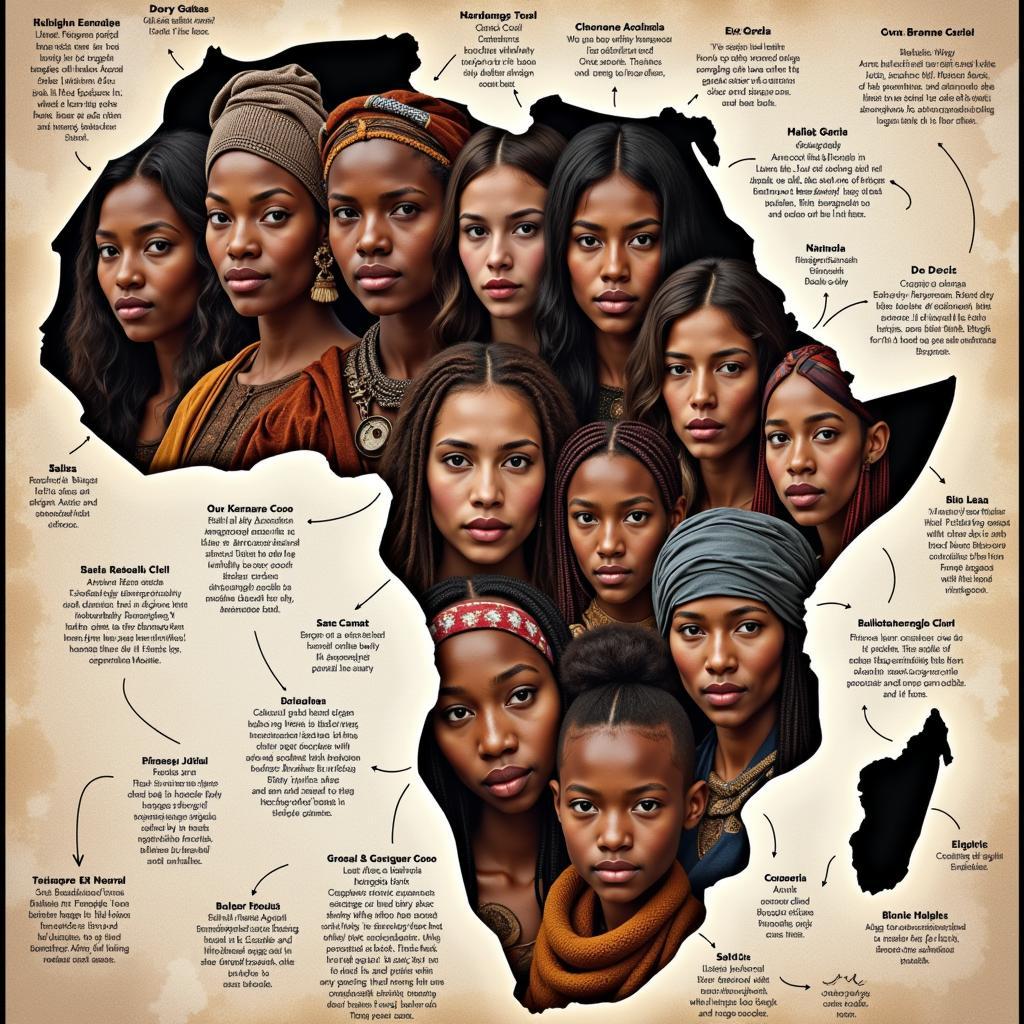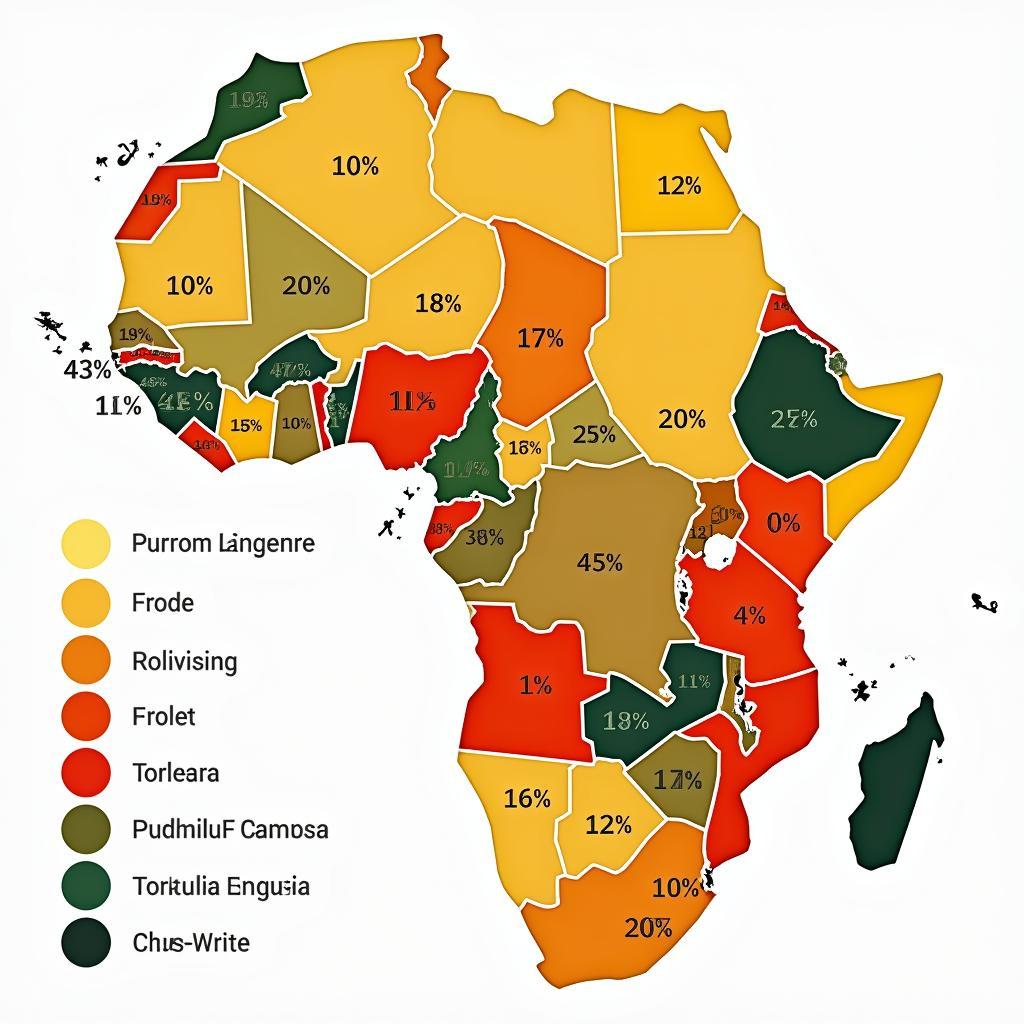Exploring African Countries by Language
Africa, a continent of vibrant cultures and rich history, boasts an incredible linguistic diversity. Understanding African Countries By Language offers a fascinating glimpse into the continent’s complex past and present. This exploration delves into the intricate tapestry of languages spoken across its diverse nations, revealing the impact of colonization, migration, and cultural exchange.
Africa is home to an estimated 2,000 languages, grouped into four major language families. This linguistic richness reflects the continent’s diverse ethnic groups and historical influences. From the Afro-Asiatic languages of North Africa to the Niger-Congo languages that dominate sub-Saharan Africa, each language tells a story. Exploring these linguistic landscapes reveals the deep connections between language, culture, and identity. See more about African countries and their languages.
The Major Language Families of Africa
The four main language families found in Africa are:
- Afro-Asiatic: Predominantly spoken in North Africa, the Horn of Africa, and parts of the Sahel. This family includes languages like Arabic, Berber, and Cushitic languages like Somali and Oromo.
- Niger-Congo: The largest language family in Africa, covering most of sub-Saharan Africa. This family includes Bantu languages like Swahili, Zulu, and Xhosa, as well as other major languages like Yoruba, Igbo, and Fula.
- Nilo-Saharan: Spoken across parts of East Africa, Central Africa, and the Sahel. This family includes languages like Maasai, Luo, and Kanuri.
- Khoisan: Primarily spoken in Southern Africa, this family includes languages with distinctive click consonants.
These families encompass a vast array of languages, dialects, and variations, reflecting the complex history of human migration and interaction across the continent. For more information, you can check out African countries and regions official languages.
How Colonialism Shaped African Languages
European colonization had a profound impact on the linguistic landscape of Africa. Many African countries adopted European languages, such as English, French, Portuguese, and Spanish, as official languages. This often came at the expense of indigenous languages, which were marginalized and sometimes suppressed. The legacy of colonialism continues to shape language policies and educational systems across the continent.
 Colonial Influence on African Languages
Colonial Influence on African Languages
The Role of Language in African Identity
Language plays a crucial role in shaping individual and collective identities in Africa. It is not just a means of communication but also a carrier of culture, history, and tradition. Many African communities maintain strong ties to their indigenous languages, which are seen as vital for preserving cultural heritage.
Language Diversity and National Unity
The linguistic diversity of many African countries presents both challenges and opportunities. While it can be a source of cultural richness, it can also create barriers to communication and national unity. Many countries have adopted multilingual policies to promote inclusivity and recognize the importance of all languages spoken within their borders. Check out this resource on African countries capitals currency and language.
 Language Diversity and African Unity
Language Diversity and African Unity
The Future of African Languages
Despite the challenges, there is a growing movement to promote and revitalize African languages. Governments, educational institutions, and cultural organizations are working to increase the use of indigenous languages in education, media, and public life. This renewed focus on African languages is essential for preserving cultural heritage and fostering a sense of pride and belonging. For further insights, explore African countries with French as their official language.
What are the most spoken languages in Africa?
Some of the most widely spoken languages in Africa include Arabic, Swahili, Amharic, Yoruba, Igbo, Zulu, and Hausa. These languages play important roles in commerce, education, and cultural exchange across the continent.
 Most Spoken Languages in Africa
Most Spoken Languages in Africa
In conclusion, exploring African countries by language reveals a continent of remarkable linguistic diversity. Understanding this linguistic landscape is crucial for appreciating the rich cultural heritage, complex history, and vibrant future of Africa. For more on the individual countries themselves, see names of African countries.
FAQ
- How many languages are spoken in Africa? Africa is home to an estimated 2,000 languages.
- What are the major language families in Africa? The four major families are Afro-Asiatic, Niger-Congo, Nilo-Saharan, and Khoisan.
- How did colonialism impact African languages? Colonialism led to the adoption of European languages as official languages in many African countries.
- Why is language important in African identity? Language is a key element of cultural identity and heritage in Africa.
- What is being done to preserve African languages? Efforts are underway to promote and revitalize indigenous languages through education and cultural programs.
- What are some of the most spoken languages in Africa? Arabic, Swahili, Amharic, Yoruba, Igbo, Zulu, and Hausa are among the most widely spoken.
- Where can I learn more about African languages? Resources like online databases and academic journals offer further information.
You might also be interested in reading about specific African countries and their languages, language families in more detail, or the impact of language on various aspects of African Life.
Need more help? Contact us! Phone: +255768904061, Email: kaka.mag@gmail.com, Address: Mbarali DC Mawindi, Kangaga, Tanzania. We have a 24/7 customer support team.
